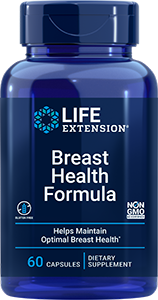Tuesday, May 10, 2016
A randomized trial reported online on April 13, 2016 in the Journal of Nutrition found improved folate-related biomarkers of cancer risk among patients who were given folic acid supplements subsequent to colorectal adenoma (polyp) removal. Polyps can be precursors of colorectal cancer and individuals who develop them are considered to be at increased risk of the disease. Polyps and their surrounding mucosa have been observed to have low folate levels compared with normal colonic mucosa.
According to authors Sharleen L. O'Reilly of Trinity College, Dublin and her colleagues at the University of Ulster, "Folate may exert a protective effect by enhancing genetic stability through 2 main pathways: preventing uracil misincorporation that leads to DNA strand breaks, and/or preventing diminished DNA methylation that causes altered gene expression."
The trial included 20 men and women who had colorectal polyps removed during colonoscopy. Participants were assigned to receive 600 micrograms folic acid or a placebo daily for six months. Repeat colonoscopies were performed after six months and colon cells from the site of excised polyps were evaluated for DNA changes. Blood and colon cell folate levels were measured before and after the treatment period.
Significant increases in serum and red blood cell folate levels and decreased plasma homocysteine levels occurred after six months among those who were given folic acid. In cells in the area of the colon adjacent to the location of the removed polyps, folate concentrations increased in those who received the vitamin, while slightly declining in the placebo group. (Folate concentrations in areas that were not near the polyp site remained the same in both groups.) Participants who received folic acid experienced a greater decline in markers of DNA damage at the site formerly adjacent to the polyps in comparison with the placebo. "That these areas persist after polypectomy in the absence of folate supplementation is consistent with a potentially carcinogenic field's causing the appearance of the polyp," the authors note. "These findings indicate that localized areas of folate depletion at sites adjacent to adenomatous polyps may respond to supplementation in a way likely to reduce mutagenesis."
"Our study, although limited by numbers, not only points toward improved folate status's exerting a beneficial effect on the health of colonocytes in critical regions in people at risk of developing colorectal cancer, but also strengthens the field cancerization hypothesis," they conclude.
In summary, the authors believe that folic acid may stabilize DNA structure and enhance healthy gene expression. |








